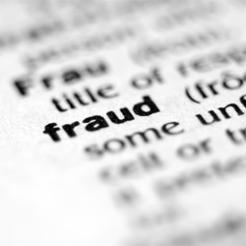New guidance released by the Charity Commission has relaxed rules on reporting minor fraud and theft but asserts that charities with annual income over £25,000 must inform the Charity Commission of any serious incident within their Annual Returns.
The update provides what the Commission calls “more proportionate” direction for reporting incidents with lesser significance. Within the ‘fraud, theft or significant loss of funds or other property’ guidance for example the Commission advises that for any losses less than £25,000 or 20 per cent of the charity’s income (whichever amount is lower) the trustees should decide whether to report this based on if it is significant to the charity or not.
For serious incidents, however, the Commission is taking a harder line: “As a matter of best practice the Commission recommends that trustees of all charities report any serious incidents to the Commission,” said a spokesperson for the Commission.
“However," they continued, "for charities with an income over £25,000 the trustees must, as part of the Annual Return, sign a declaration that there are no serious incidents that they should have brought to our attention but have not.
“If they are unable to make this declaration then the Annual Return is not complete and they will have not met their legal responsibilities.”
The Commission has seen a significant rise in the number of serious incidents reported with the latest figures showing a 75 per cent rise in 2009/10 which it attributes to greater awareness of the reporting requirements.
But it said there were still a great many incidents not being reported and the guidance includes further clarification on how to report an incident, confidentiality in reporting incidents and the Commission’s role in relation to other bodies upon reporting serious incidents.
What counts as a serious incident? |
|
|
|
|
|
|
|
|








